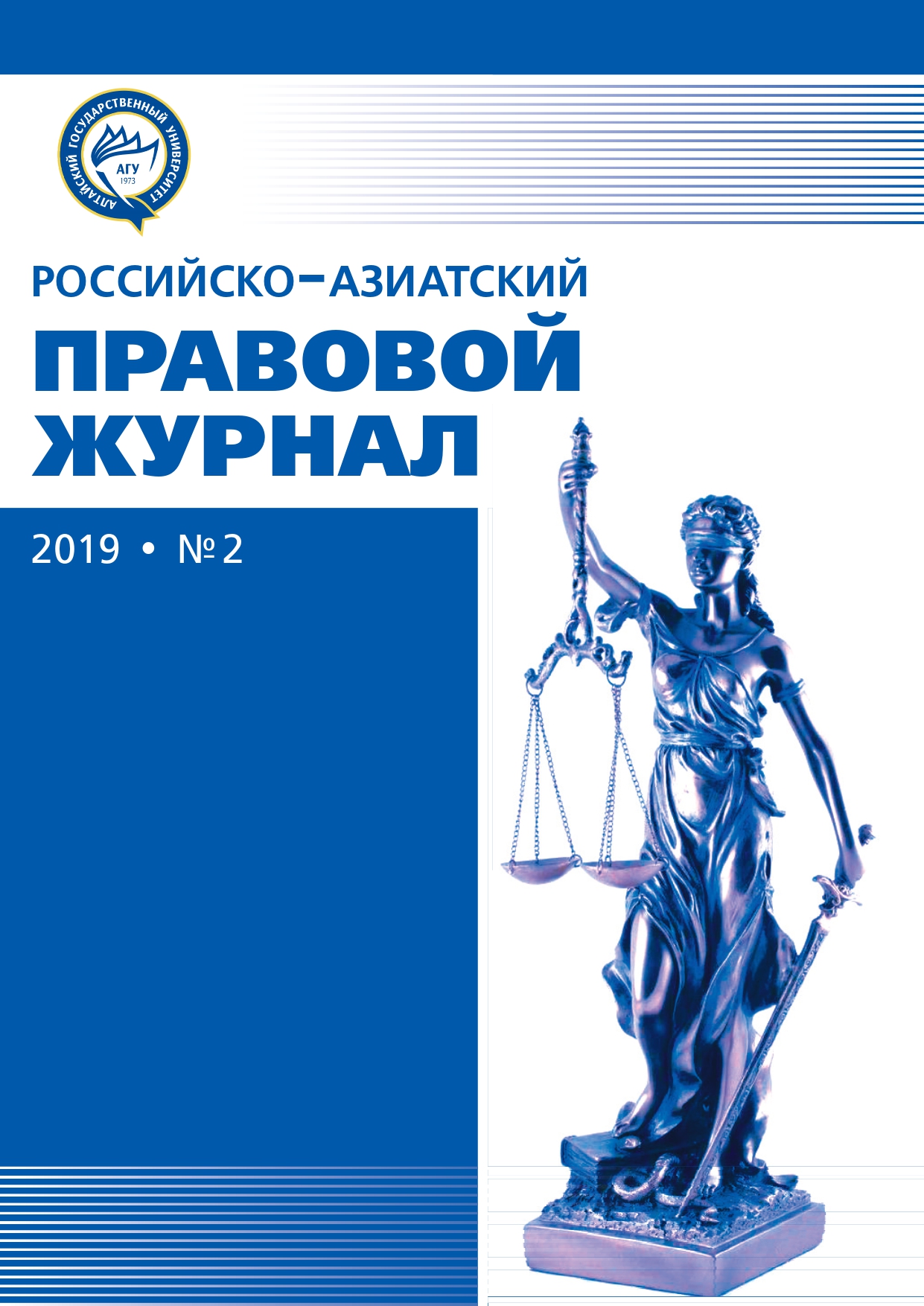ФОРМИРОВАНИЕ НАДНАЦИОНАЛЬНОГО НАУЧНОГО ПРАВА КАК ОТРАСЛИ МЕЖДУНАРОДНОГО ПУБЛИЧНОГО ПРАВА*
УДК 341.01 ББК 67.91
Abstract
The formation of scientific law as one of the branches of public international law is Analyzed. Adiscussion on this issue and arguments in favor of an independent sectoral nature of supranational scientific law, taking into account the practice of the development of modern international law.
Downloads
References
Herdegen M. Principles of International Economic Law. New York, 2016.
Лисаускайте В.В. Фрагментация и формирование новых элементов системы международного
права // Международное публичное и частное право. 2016. №6.
Hafner G. Pros and Cons Ensuing from Fragmentation of International Law // Michigan Journal
of International Law, 2004, Volume 25. Issue 4. P. 849–850.
Фельдман Д.И. Система международного права. Казань, 1983.
Международное право : учебник / под ред. Ю.М. Колосова, В.И. Кузнецова. М., 1999.
Соглашение между правительствами государств-членов Шанхайской организации сотрудничества о научно-техническом сотрудничестве 2013 г. // URL: http://rus.sectsco.org/documents/ (дата обращения: 25.06.2019).
Russian-Asian Law Journal is a golden publisher, as we allow self-archiving, but most importantly we are fully transparent about your rights.
Authors may present and discuss their findings ahead of publication: at scientific conferences, on preprint servers, in public databases, and in blogs, wikis, tweets, and other informal communication channels.
Russian-Asian Law Journal allows authors to deposit manuscripts (currently under review or those for intended submission) in non-commercial, pre-print servers such as ArXiv.
Authors who publish with this journal agree to the following terms:
- Authors retain copyright and grant the journal right of first publication with the work simultaneously licensed under a Creative Commons Attribution License that allows others to share the work with an acknowledgement of the work's authorship and initial publication in this journal.
- Authors are able to enter into separate, additional contractual arrangements for the non-exclusive distribution of the journal's published version of the work (e.g., post it to an institutional repository or publish it in a book), with an acknowledgement of its initial publication in this journal.
- Authors are permitted and encouraged to post their work online (e.g., in institutional repositories or on their website) prior to and during the submission process, as it can lead to productive exchanges, as well as earlier and greater citation of published work (See The Effect of Open Access).








